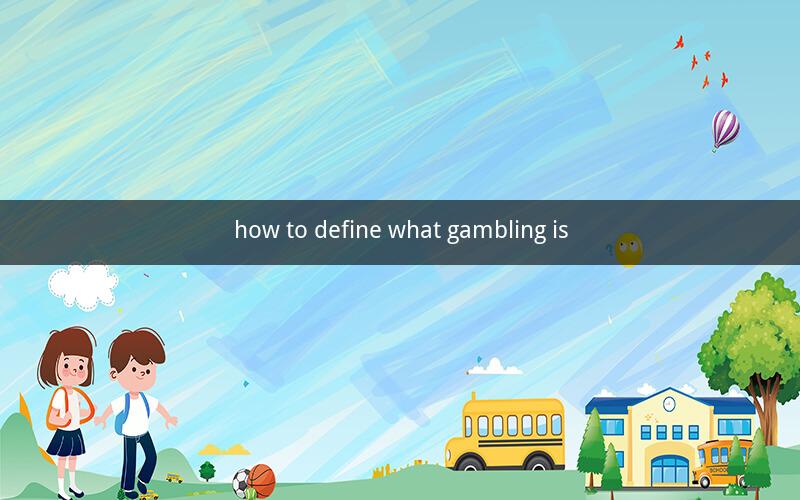
Defining Gambling: Understanding Its Nature and Scope
Table of Contents
1. Introduction to Gambling
2. Historical Perspective on Gambling
3. Legal Definitions of Gambling
4. Psychological and Sociological Aspects of Gambling
5. Different Forms of Gambling
6. The Impact of Gambling on Individuals and Society
7. Conclusion
1. Introduction to Gambling
Gambling is a phenomenon that has been present in human society for centuries. It involves risking money or something of value on an uncertain event with the intention of winning something of greater value. While the concept of gambling is straightforward, defining it precisely can be challenging due to its diverse nature and varying legal and cultural contexts.
2. Historical Perspective on Gambling
Gambling has a long and rich history, with evidence of its existence dating back to ancient civilizations. For example, ancient Egyptians, Greeks, and Romans engaged in various forms of gambling, including dice games, card games, and horse racing. Over time, gambling has evolved, with new forms emerging and existing ones adapting to changing social and technological landscapes.
3. Legal Definitions of Gambling
The legal definition of gambling varies from one jurisdiction to another. Generally, gambling is defined as any game, contest, or activity where individuals place bets on the outcome of an event that is uncertain. Some jurisdictions also include certain types of betting as gambling, such as lottery games, horse racing, and sports betting.
4. Psychological and Sociological Aspects of Gambling
Gambling is not merely a legal or economic activity; it also has significant psychological and sociological implications. From a psychological perspective, gambling can be addictive, leading to negative consequences for individuals and their families. Sociologically, gambling can have both positive and negative effects on communities, depending on its regulation and implementation.
5. Different Forms of Gambling
Gambling comes in various forms, each with its unique characteristics and risks. Some common types of gambling include:
- Casino Gambling: Involves playing games of chance, such as slot machines, blackjack, roulette, and poker, in a casino setting.
- Sports Betting: Placing bets on the outcome of sports events, including professional and amateur competitions.
- Lottery: Buying tickets for a chance to win a prize, usually in the form of money or goods.
- Social Gambling: Engaging in gambling activities with friends or family members, often involving small amounts of money.
- Online Gambling: Participating in gambling activities through the internet, including online casinos, sports betting platforms, and lottery websites.
6. The Impact of Gambling on Individuals and Society
Gambling can have both positive and negative impacts on individuals and society. On one hand, it can provide entertainment, excitement, and financial benefits for some. On the other hand, it can lead to addiction, financial ruin, and other adverse consequences for individuals and their families. Moreover, gambling can also have broader societal effects, such as increased crime rates, reduced productivity, and strained social relationships.
7. Conclusion
Defining gambling is a complex task, as it encompasses various legal, psychological, and sociological aspects. While gambling has its risks and negative consequences, it also offers entertainment and financial opportunities for some. Understanding the nature and scope of gambling is essential for developing effective policies and regulations to mitigate its adverse effects while maximizing its potential benefits.
Questions and Answers
1. Q: What is the primary purpose of defining gambling?
A: The primary purpose of defining gambling is to establish clear legal boundaries, understand its implications, and develop policies to manage its risks and benefits.
2. Q: How does the definition of gambling vary across different jurisdictions?
A: The definition of gambling varies across jurisdictions due to differences in legal systems, cultural values, and economic interests.
3. Q: What are the psychological risks associated with gambling?
A: The psychological risks of gambling include addiction, depression, anxiety, and financial stress.
4. Q: How can gambling contribute to crime rates in a community?
A: Gambling can contribute to crime rates by fueling illegal activities, such as loan sharking, theft, and fraud, to support gambling habits.
5. Q: What are the potential financial benefits of gambling for individuals?
A: The potential financial benefits of gambling include winning money, generating tax revenue, and supporting entertainment industries.
6. Q: How can gambling addiction affect family relationships?
A: Gambling addiction can strain family relationships by causing financial strain, emotional abuse, and neglect of responsibilities.
7. Q: What is the role of government in regulating gambling?
A: The government's role in regulating gambling includes establishing legal frameworks, licensing operators, and enforcing regulations to ensure fair and responsible gambling practices.
8. Q: How can individuals recognize signs of gambling addiction?
A: Signs of gambling addiction include preoccupation with gambling, hiding gambling activities, borrowing money to gamble, and experiencing negative consequences due to gambling.
9. Q: What are some effective strategies for preventing gambling addiction?
A: Effective strategies for preventing gambling addiction include setting limits on gambling activities, seeking support from friends and family, and seeking professional help if needed.
10. Q: How can communities benefit from regulated gambling?
A: Communities can benefit from regulated gambling by generating tax revenue, supporting local businesses, and providing employment opportunities.